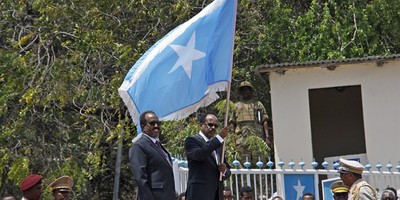Last month, the Senate Select Committee on Intelligence gave John Brennan, the new CIA director, another opportunity to answer a question he had dodged at his confirmation hearing: "Could the administration carry out drone strikes inside the United States?" Brennan's written response: "This administration has not carried out drone strikes inside the United States and has no intention of doing so."
When asked how far President Obama is legally allowed to go in marking suspected terrorists for death, his administration has responded, again and again, with a description of what he so far has chosen to do. It is this kind of maddening evasiveness that provoked the inspiring, attention-grabbing filibuster that Sen. Rand Paul, R-Ky., staged last week, refusing to let Brennan's confirmation proceed until the Obama administration deigned to address his questions about the president's license to kill.
Although Paul declared "victory" and pronounced himself "quite happy" with the response he got from Attorney General Eric Holder last Thursday, very little was clarified. Here is the question that Holder chose to address in his March 7 letter to Paul: "Does the president have the authority to use a weaponized drone to kill an American not engaged in combat on American soil?" Holder said, "The answer to that question is no."
That sounds straightforward, unless you realize that, according to the Obama administration, the people it identifies as members or allies of al-Qaida (including "financiers") are engaged in combat even when they are driving down the street or sitting in their homes, far from any active battlefield. The administration does not acknowledge any geographic limits on the president's purported authority to issue death warrants.
Recommended
Although the Justice Department's leaked white paper about targeted killings focuses on people who pose an "imminent threat," it defines that term so broadly that pretty much any alleged terrorist would qualify. In any case, the white paper emphasizes that the criteria it discusses are sufficient to order someone's death but may not be necessary.
Hence all the questions about killing suspected terrorists inside the United States even when they do not pose an immediate threat of violence. The administration's slippery responses to those questions have only reinforced the suspicion that Obama is trying to keep all his options open.
Asked if "drone strikes" are "allowed with citizens within the United States" during an online Q&A session on Feb. 14, Obama said, "There has never been a drone used on an American citizen on American soil." In a March 4 letter to Paul, Holder likewise declared that "the U.S. government has not carried out drone strikes in the United States and has no intention of doing so."
But Holder added that "in the circumstances of a catastrophic attack," such as 9/11, he would "examine the particular facts and circumstances before advising the president on the scope of his authority" to order domestic military action. That phrasing suggests Holder was not talking about using deadly force to defend against an attack, which clearly would be justified.
If an airplane were about to crash into the Capitol, there would be neither the need nor the time to prepare a legal memo. So it's a mystery what Holder was imagining when he raised this possibility.
The administration's evasiveness reached comical heights at a March 6 hearing before the Senate Judiciary Committee. Responding to questions from Sen. Ted Cruz, R-Texas, Holder repeatedly refused to say whether it would be constitutional to use lethal force against a suspected terrorist in the U.S. who is not in the midst of an attack but merely "sitting in a cafe" or "walking down a pathway." Holder conceded only that it would not be "appropriate."
Finally, after Cruz had given up on getting a straight answer, Holder said, "Translate my 'appropriate' to no. I thought I was saying no." I'm not sure what that means, but it still counts as the administration's clearest response to date.
























Join the conversation as a VIP Member